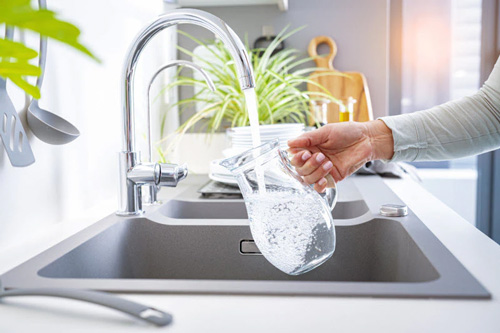Plumbing systems are the backbone of modern infrastructure, providing us with essential services like clean water supply and wastewater disposal. Yet, the longevity and efficiency of these plumbing systems are intricately tied to a factor often overlooked – water quality.
The quality of water flowing through our pipes can significantly impact the durability and functionality of the entire plumbing network. In this article, we will explore the link between water quality and plumbing system longevity, shedding light on the importance of water quality management for sustainable infrastructure.
Understanding Water Quality
Water quality refers to the chemical, physical, and biological characteristics of water. Key indicators such as pH, hardness, and the presence of contaminants play a crucial role in determining water quality.
Contaminants can stem from various sources, including pollutants from industrial processes, minerals from the ground, and the gradual deterioration of aging pipes. Poor water quality not only affects the performance of plumbing systems but also poses significant health risks to consumers and negatively impacts the environment.

Plumbing System Components and Vulnerabilities
A typical plumbing system consists of a complex network of pipes, fittings, and fixtures. Each component has its vulnerabilities, making them susceptible to wear and tear over time.
Corrosion, clogs, and leaks are among the most common issues that plague plumbing systems. Understanding these vulnerabilities is essential to comprehend how water quality affects the longevity of plumbing systems.
Corrosion And Scaling Effects
Corrosion is a prevalent issue in plumbing systems and is influenced by the acidity or alkalinity of water. When water has a low pH, it becomes acidic, gradually eating away at metal pipes and fittings.
On the other hand, high pH levels can cause alkaline water, which triggers a different form of corrosion. Over time, corrosion weakens the structural integrity of pipes, leading to leaks and burst pipes.
Scaling is another problem associated with water quality. When water contains high levels of minerals like calcium and magnesium, they can accumulate inside pipes and fixtures, forming mineral deposits known as scale. Scale reduces the flow of water, increases pressure, and diminishes the efficiency of the plumbing system.
Effects Of Contaminants on Plumbing
Contaminants in water, such as heavy metals, bacteria, and chlorine, can have adverse effects on plumbing system materials. For instance, high levels of chlorine can degrade rubber gaskets and seals, causing leaks.
Bacteria can lead to biofilm formation inside pipes, exacerbating corrosion and clogging issues. Heavy metals, like lead, can leach into the water supply, posing severe health hazards for consumers and damaging plumbing components.
Case Studies
Real-world examples illustrate the significant impact of water quality on plumbing systems. In Flint, Michigan, poor water quality led to lead contamination, resulting in damaged pipes, health crises, and significant financial burdens.
Additionally, in regions with hard water, plumbing systems suffer from severe scaling issues, reducing the lifespan of pipes and requiring frequent maintenance.
Conversely, successful examples of well-managed water quality in cities like Zurich, Switzerland, have demonstrated prolonged plumbing system longevity and minimized repair costs.
Water Quality Management and Maintenance
To ensure the longevity of plumbing systems, effective water quality management is crucial. Regular water testing and monitoring can identify issues early, allowing for timely interventions.
Proper treatment methods, such as water softening to reduce hardness or chlorine removal, can enhance water quality before it enters the plumbing system. Adequate maintenance practices, including regular cleaning and inspections, can significantly extend the life of plumbing components.
Regulations And Standards
Governments and regulatory bodies play a critical role in ensuring water quality standards are met. Existing regulations focus on safe drinking water standards and wastewater treatment.
However, there is room for improvement, particularly in implementing stricter guidelines to prevent the release of harmful contaminants and promote sustainable water management practices. Collaboration between regulators, water utilities, and the public is essential to uphold water quality standards effectively.
Future Challenges and Solutions
Looking ahead, the challenges related to water quality and plumbing system longevity are likely to intensify. Climate change, population growth, and aging infrastructure pose significant threats to water quality.
However, technology and innovation offer promising solutions. Advanced water treatment technologies, eco-friendly plumbing materials, and efficient leak detection systems are some of the potential solutions that can safeguard plumbing systems in the future.
Atlantic Blue Water Services can Ensure the Quality of Your Water
Good water quality is essential for the longevity of plumbing systems. Poor water can cause rust, mineral buildup, and damage to pipes, leading to costly repairs and inefficiency. To ensure durable plumbing, follow water safety guidelines and use smart technologies for clean, safe water and sustainable infrastructure.
When we take these steps, we can enjoy the benefits of having clean and healthy water for ourselves and our families. If you want to learn more about how to ensure the quality of your well water, you can contact Atlantic Blue Water Services today at 410-840-2583!
